مقدمهای بر بهینهسازی موتورهای جستجو سئو چیست؟
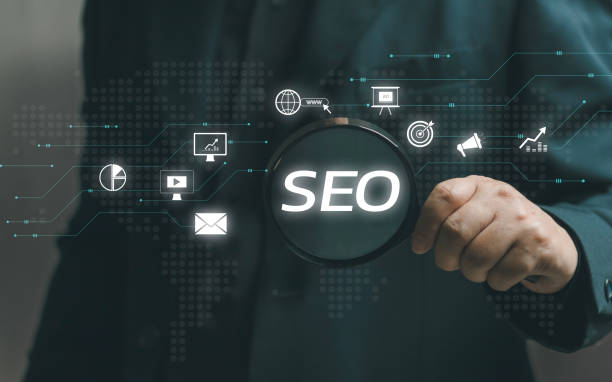
در دنیای دیجیتال امروز، دیده شدن برای هر کسبوکار و وبسایتی حیاتی است.
اینجاست که مفهوم #بهینهسازی_موتورهای_جستجو، یا به اختصار سئو (#SEO)، وارد میدان میشود.
سئو مجموعهای از تکنیکها و استراتژیهاست که هدف آن بهبود رتبه یک وبسایت در نتایج طبیعی موتورهای جستجو مانند گوگل است.
این فرآیند، نه تنها به افزایش ترافیک وبسایت شما کمک میکند، بلکه باعث میشود بازدیدکنندگانی را جذب کنید که به طور فعال به دنبال محصولات یا خدمات شما هستند.
اهمیت سئو تنها به افزایش بازدید محدود نمیشود؛ بلکه به اعتمادسازی و اعتباربخشی به برند شما نیز کمک شایانی میکند.
وقتی وبسایت شما در صفحات اول نتایج جستجو ظاهر میشود، کاربران آن را معتبرتر و قابل اعتمادتر میدانند.
این موضوع به ویژه برای کسبوکارهای کوچک و متوسط که به دنبال رقابت با شرکتهای بزرگتر هستند، بسیار حیاتی است.
در این بخش توضیحی جامع درباره مبانی سئو و چرایی اهمیت آن برای هر حضور آنلاین ارائه میدهیم.
هدف اصلی سئو این است که وبسایت شما را برای موتورهای جستجو قابل فهمتر کرده و ارتباط آن را با کلمات کلیدی خاصی که کاربران جستجو میکنند، تقویت کند.
این یک رویکرد اموزشی برای درک پایههای این علم است.
فروش آنلاینتان آنطور که انتظار دارید نیست؟ با رساوب، مشکل فروش پایین و تجربه کاربری ضعیف را برای همیشه حل کنید!
✅ افزایش نرخ تبدیل بازدیدکننده به مشتری
✅ ایجاد تجربه کاربری لذتبخش و افزایش اعتماد مشتری
⚡ برای دریافت مشاوره رایگان همین حالا اقدام کنید!
ارکان اصلی سئو داخلی، خارجی و فنی

سئو یک علم چندوجهی است که از سه رکن اصلی تشکیل شده است: سئو داخلی (On-Page SEO)، سئو خارجی (Off-Page SEO) و سئو فنی (Technical SEO).
هر یک از این ارکان نقش حیاتی در موفقیت کلی استراتژی بهینهسازی شما ایفا میکنند و درک تفاوتها و ارتباطات آنها برای هر متخصص سئو ضروری است.
سئو داخلی به تمام بهینهسازیهایی اشاره دارد که در داخل وبسایت شما انجام میشود؛ از جمله بهینهسازی عنوان صفحات، توضیحات متا، ساختار URL، محتوای متنی، تصاویر و استفاده صحیح از هدینگها.
این اقدامات به موتورهای جستجو کمک میکند تا محتوای صفحه شما را بهتر درک کنند و اهمیت آن را بسنجند.
از سوی دیگر، سئو خارجی به فعالیتهایی خارج از وبسایت شما میپردازد که هدفشان افزایش اعتبار و اعتماد وبسایت در نظر موتورهای جستجو است.
مهمترین بخش سئو خارجی، لینکسازی (Backlinking) است که شامل دریافت لینک از وبسایتهای معتبر دیگر میشود.
این لینکها به موتورهای جستجو نشان میدهند که وبسایت شما مورد اعتماد و مرجع است.
در نهایت، سئو فنی به بهینهسازی جنبههای فنی وبسایت میپردازد تا خزش و ایندکس شدن آن توسط موتورهای جستجو آسانتر شود.
این شامل سرعت بارگذاری سایت، سازگاری با موبایل، ساختار سایت، استفاده از نقشه سایت (Sitemap) و فایل robots.txt، و امنیت وبسایت (HTTPS) میشود.
این سه رکن به طور جداییناپذیری با هم کار میکنند تا یک استراتژی سئو تخصصی و مؤثر را شکل دهند که منجر به بهبود رتبهبندی و افزایش ترافیک ارگانیک شود.
تحقیق کلمات کلیدی قلب هر استراتژی سئو
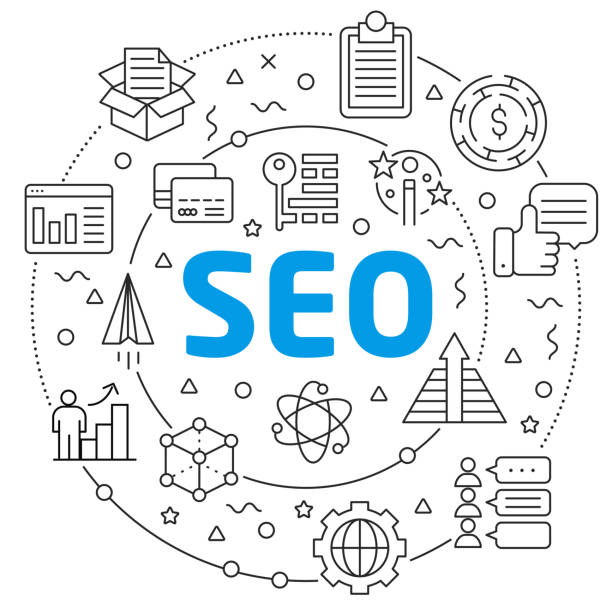
تحقیق کلمات کلیدی، ستون فقرات هر استراتژی موفق سئو است.
بدون درک این که مخاطبان شما چه عباراتی را در موتورهای جستجو وارد میکنند، نمیتوانید محتوای مرتبط و بهینه تولید کنید.
تحقیق کلمات کلیدی فرآیندی است که در آن شما کلمات و عباراتی را که کاربران برای یافتن اطلاعات، محصولات یا خدمات شما استفاده میکنند، شناسایی میکنید.
این کار به شما کمک میکند تا محتوای خود را حول محور نیازهای واقعی مخاطبان شکل دهید.
کلمات کلیدی میتوانند به سه دسته اصلی تقسیم شوند: کلمات کلیدی کوتاه (Short-tail keywords) مانند “کفش” که بسیار عمومی هستند و رقابت بالایی دارند؛ کلمات کلیدی میانرده (Mid-tail keywords) مانند “کفش ورزشی مردانه” که کمی خاصترند؛ و کلمات کلیدی طولانی (Long-tail keywords) مانند “بهترین کفش ورزشی برای دویدن ماراتن در تهران” که بسیار خاص بوده و نرخ تبدیل بالاتری دارند.
برای انجام یک تحقیق تحلیلی و کارآمد، میتوانید از ابزارهای مختلفی مانند Google Keyword Planner، SEMrush، Ahrefs و یا حتی جستجوهای مرتبط گوگل استفاده کنید.
این ابزارها به شما حجم جستجو، میزان رقابت و کلمات کلیدی مرتبط را نشان میدهند.
انتخاب کلمات کلیدی مناسب نه تنها بر نوع محتوای تولیدی شما تأثیر میگذارد، بلکه مسیر کلی استراتژی سئو شما را نیز مشخص میکند.
هدف این است که کلمات کلیدیای را پیدا کنید که هم حجم جستجوی مناسبی داشته باشند و هم بتوانید در آنها رقابت کنید.
این گام حیاتی، پایه و اساس ساختاردهی به کل وبسایت شما و موفقیت در سئو است.
| نوع کلمه کلیدی | طول | هدف کاربر | میزان رقابت | نمونه |
|---|---|---|---|---|
| Short-tail (کوتاه) | 1-2 کلمه | عمومی، کاوش | خیلی زیاد | “سئو”، “لپ تاپ” |
| Mid-tail (میانرده) | 2-3 کلمه | کمی خاصتر، جستجوی محصول | متوسط رو به بالا | “بهترین نرم افزار سئو“ |
| Long-tail (طولانی) | 4+ کلمه | بسیار خاص، آماده خرید/عمل | کمتر | “نحوه افزایش سرعت سایت وردپرس برای سئو“ |
بهینهسازی سئو داخلی محتوا و ساختار سایت
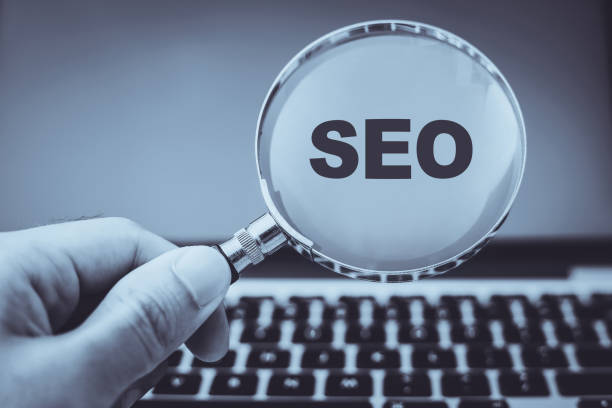
سئو داخلی، همانطور که قبلاً اشاره شد، به بهینهسازی عناصر درون وبسایت شما میپردازد تا موتورهای جستجو بتوانند محتوای شما را بهتر درک کرده و ارزش آن را تشخیص دهند.
این بخش شامل چندین فاکتور کلیدی است که با رعایت آنها میتوانید عملکرد سئو سایت خود را به طور قابل توجهی بهبود بخشید.
از مهمترین عوامل، بهینهسازی عنوان صفحه (Title Tag) است که اولین چیزی است که کاربران در نتایج جستجو میبینند.
این عنوان باید شامل کلمه کلیدی اصلی صفحه باشد و جذابیت کافی برای کلیک کردن را داشته باشد.
در کنار آن، توضیحات متا (Meta Description) نیز مهم است، هرچند مستقیماً در رتبهبندی تأثیر ندارد اما میتواند نرخ کلیک (CTR) را افزایش دهد.
ساختار URL صفحات نیز باید کوتاه، توصیفی و شامل کلمات کلیدی باشد.
استفاده صحیح از هدینگها (H1, H2, H3, etc.) در ساختاردهی محتوا و بهبود خوانایی نقش مهمی ایفا میکند و به موتورهای جستجو در درک سلسله مراتب محتوا کمک میکند.
محتوای با کیفیت و منحصر به فرد که نیازهای کاربران را برآورده میکند، قلب سئو داخلی است.
اطمینان حاصل کنید که کلمات کلیدی به طور طبیعی در متن پراکنده شدهاند و از پر کردن بیش از حد کلمات کلیدی (Keyword Stuffing) پرهیز کنید.
بهینهسازی تصاویر با استفاده از تگ Alt و فشردهسازی برای سرعت بارگذاری، از دیگر جنبههای مهم است.
این راهنماییها به شما کمک میکنند تا یک تجربه کاربری عالی و در عین حال قابل فهم برای موتورهای جستجو ایجاد کنید و به این ترتیب رتبه سئو خود را افزایش دهید.
آیا طراحی سایت فروشگاهی فعلی شما، فروش مورد انتظار را برایتان رقم نمیزند؟
رساوب متخصص طراحی سایت فروشگاهی حرفهای است!
✅ سایتی جذاب و کاربرپسند با هدف افزایش فروش
✅ سرعت و امنیت بالا برای تجربه خرید ایدهآل⚡ مشاوره رایگان طراحی فروشگاه آنلاین با رساوب بگیرید!
سئو خارجی لینکسازی و ارتقاء اعتبار

سئو خارجی به تمام اقداماتی اشاره دارد که خارج از وبسایت شما انجام میشوند تا اعتبار و جایگاه آن را در نظر موتورهای جستجو افزایش دهند.
مهمترین و تاثیرگذارترین عنصر در سئو خارجی، لینکسازی (Backlinking) است.
لینکهای ورودی از وبسایتهای دیگر، به مثابه رای اعتماد از سوی آن سایتها عمل میکنند و به موتورهای جستجو نشان میدهند که محتوای شما ارزشمند و معتبر است.
کیفیت لینکها از کمیت آنها اهمیت بیشتری دارد؛ یک لینک از یک وبسایت معتبر و مرتبط، به مراتب از دهها لینک از وبسایتهای بیکیفیت ارزش بیشتری دارد.
استراتژیهای موثر برای لینکسازی شامل ایجاد محتوای با کیفیت و قابل اشتراکگذاری، برقراری ارتباط با اینفلوئنسرها و وبسایتهای صنعتی، شرکت در تالارهای گفتوگو و انجمنهای مرتبط، و همچنین استفاده از تکنیکهای Broken Link Building است.
علاوه بر لینکسازی، عوامل دیگری مانند فعالیت در شبکههای اجتماعی و اشاره به برند شما در فضای آنلاین نیز در سئو خارجی تاثیرگذارند، هرچند تاثیر مستقیم آنها بر رتبهبندی ممکن است کمتر از بکلینکها باشد.
کسبوکارهای محلی نیز میتوانند از سئو محلی (Local SEO) بهرهمند شوند که شامل بهینهسازی لیستینگهای کسبوکار در پلتفرمهایی مانند Google My Business است.
رصد کردن پروفایل بکلینک رقبا و تلاش برای کسب لینک از منابع مشابه و معتبر میتواند یک استراتژی خبری و رقابتی باشد.
به یاد داشته باشید که یک پروفایل بکلینک طبیعی و متنوع، کلید موفقیت در سئو خارجی است و استفاده از روشهای اسپم مانند خرید لینک میتواند به رتبه سئو شما آسیب جدی وارد کند.
سئو فنی سلامت و سرعت سایت

سئو فنی یکی از جنبههای بنیادین بهینهسازی موتورهای جستجو است که اغلب نادیده گرفته میشود، اما نقش حیاتی در قابلیت خزش (Crawlability) و ایندکس شدن (Indexability) وبسایت شما توسط موتورهای جستجو ایفا میکند.
این بخش شامل بهینهسازی زیرساختهای فنی سایت شما برای اطمینان از دسترسی آسان و کارآمد موتورهای جستجو و کاربران است.
سرعت بارگذاری وبسایت (Page Speed) یکی از مهمترین فاکتورهای سئو فنی و تجربه کاربری است.
سایتی که به سرعت بارگذاری میشود، نه تنها باعث رضایت بیشتر کاربران میشود، بلکه توسط موتورهای جستجو نیز ترجیح داده میشود.
برای بهبود سرعت، میتوانید تصاویر را فشرده کنید، از کش (Caching) مرورگر استفاده کنید، فایلهای CSS و JavaScript را بهینه کنید و از یک هاستینگ معتبر بهره ببرید.
سازگاری با موبایل (Mobile-Friendliness) نیز اکنون یک فاکتور رتبهبندی بسیار مهم است، زیرا بخش عظیمی از جستجوها از طریق دستگاههای موبایل انجام میشود.
استفاده از طراحی واکنشگرا (Responsive Design) بهترین راه برای اطمینان از نمایش صحیح سایت در هر دستگاهی است.
امنیت وبسایت با استفاده از HTTPS و گواهی SSL نیز ضروری است، چرا که گوگل سایتهای امن را به سایتهای ناامن ترجیح میدهد.
ساختار سایت (Site Structure) واضح و منطقی، استفاده صحیح از نقشه سایت XML (XML Sitemap) و فایل robots.txt برای راهنمایی رباتهای جستجوگر، و پیادهسازی دادههای ساختاریافته (Schema Markup) برای کمک به موتورهای جستجو در درک محتوای خاص، از دیگر جنبههای کلیدی سئو فنی هستند.
این اقدامات تضمین میکنند که وبسایت شما از نظر فنی سالم است و به بهترین شکل ممکن برای موتورهای جستجو بهینه شده است تا بالاترین رتبه سئو را کسب کند.
نقش محتوا در استراتژی سئو ایجاد ارزش برای کاربران
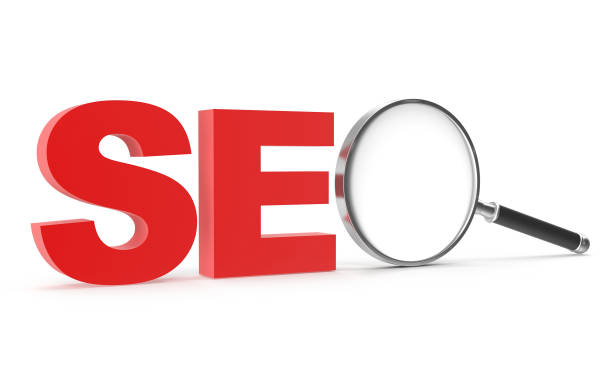
محتوا بدون شک پادشاه سئو است.
صرفنظر از تمامی بهینهسازیهای فنی و لینکسازی، اگر محتوای شما ارزشمند، مرتبط و با کیفیت نباشد، نمیتوانید در درازمدت در نتایج جستجو دوام بیاورید.
موتورهای جستجو در درجه اول به دنبال ارائه بهترین و مرتبطترین پاسخ به سوالات کاربران هستند، و اینجاست که محتوای عالی نقش خود را ایفا میکند.
تولید محتوای ارزشمند به معنای ایجاد مطالبی است که نه تنها کلمات کلیدی مورد نظر شما را پوشش میدهد، بلکه به طور کامل به نیازها و سوالات کاربران پاسخ میدهد، اطلاعات جامع ارائه میدهد و تجربه کاربری مثبتی را رقم میزند.
انواع مختلفی از محتوا وجود دارد که میتوانید برای استراتژی سئو خود از آنها بهره ببرید، از جمله مقالات وبلاگ، راهنماهای جامع، ویدئوها، اینفوگرافیکها، پادکستها، و حتی محتوای محتوای سوالبرانگیز که باعث تعامل و بحث میشود.
هرچه محتوای شما جذابتر و کاربردیتر باشد، احتمال بیشتری دارد که کاربران زمان بیشتری را در صفحه شما بگذرانند، آن را به اشتراک بگذارند و به آن لینک دهند، که همگی سیگنالهای مثبتی برای رتبهبندی سئو محسوب میشوند.
تلاش کنید محتوای سرگرمکننده نیز تولید کنید تا مخاطبان بیشتری را جذب کنید.
به روزرسانی منظم محتوای قدیمی و اضافه کردن اطلاعات جدید نیز میتواند به حفظ رتبهبندی و نشان دادن تازگی سایت به موتورهای جستجو کمک کند.
در نهایت، تمرکز بر کیفیت و ارجحیت دادن به تجربه کاربری در تولید محتوا، تضمینکننده موفقیت بلندمدت در دنیای سئو است.
| نوع محتوا | هدف اصلی | مثال | تأثیر بر سئو |
|---|---|---|---|
| مقالات وبلاگ | آموزش، اطلاعرسانی | “نحوه بهینهسازی سئو برای سایتهای فروشگاهی” | افزایش کلمات کلیدی، ترافیک ارگانیک |
| راهنماهای جامع | پاسخ به سوالات عمیق | “راهنمای کامل سئو برای مبتدیان” | مرجع شدن، کسب بکلینک |
| اینفوگرافیک | نمایش داده بصری | “آمار و ارقام سئو در ایران” | افزایش اشتراکگذاری، جذابیت بصری |
| ویدئو | آموزش بصری، سرگرمی | “آموزش تصویری استراتژیهای سئو“ | کاهش نرخ پرش، افزایش زمان ماندگاری |
اندازهگیری موفقیت سئو ابزارها و شاخصها

پس از اجرای استراتژیهای سئو، مهم است که بتوانید اثربخشی آنها را اندازهگیری کنید.
اندازهگیری و تحلیل دادهها به شما کمک میکند تا نقاط قوت و ضعف استراتژی خود را شناسایی کرده و برای بهبود عملکرد در آینده تصمیمات آگاهانه بگیرید.
ابزارهای مختلفی برای این منظور وجود دارند که دو مورد از مهمترین آنها Google Analytics و Google Search Console هستند.
Google Analytics اطلاعات جامع و دقیقی در مورد ترافیک وبسایت شما، رفتار کاربران، منابع ترافیک و نرخ تبدیل ارائه میدهد.
با استفاده از این ابزار میتوانید ببینید که چند نفر از طریق جستجوی ارگانیک وارد سایت شما شدهاند، چه صفحاتی را بازدید کردهاند و چه مدت زمانی را در سایت گذراندهاند.
Google Search Console اطلاعاتی در مورد عملکرد سایت شما در نتایج جستجو، کلمات کلیدی که کاربران با آنها سایت شما را پیدا کردهاند، مشکلات خزش و ایندکس شدن، و بکلینکها ارائه میدهد.
این ابزار برای شناسایی مشکلات فنی و بهبود رتبهبندی کلمات کلیدی بسیار ارزشمند است.
شاخصهای کلیدی عملکرد (KPIs) که باید برای سئو رصد کنید، شامل: ترافیک ارگانیک، رتبهبندی کلمات کلیدی، نرخ کلیک (CTR)، نرخ پرش (Bounce Rate)، زمان ماندگاری در صفحه، و نرخ تبدیل (Conversion Rate) برای اهداف تجاری هستند.
تحلیل منظم این دادهها به شما امکان میدهد که استراتژی سئو خود را به طور مستمر بهینه کنید و از سرمایهگذاریهای خود بهترین بازدهی را کسب کنید.
این یک رویکرد تحلیلی است که تضمین میکند تلاشهای سئو شما همواره در مسیر درست قرار دارند.
آیا وبسایت شرکت شما آنطور که باید، حرفهای و قابل اعتماد است؟ با طراحی سایت شرکتی تخصصی توسط رساوب، حضوری آنلاین خلق کنید که معرف اعتبار شما باشد و مشتریان بیشتری را جذب کند.
✅ ساخت تصویری قدرتمند و حرفهای از برند شما
✅ تبدیل بازدیدکنندگان به مشتریان واقعی
⚡ همین حالا مشاوره رایگان دریافت کنید!
آینده سئو هوش مصنوعی، جستجوی صوتی و فراتر از آن
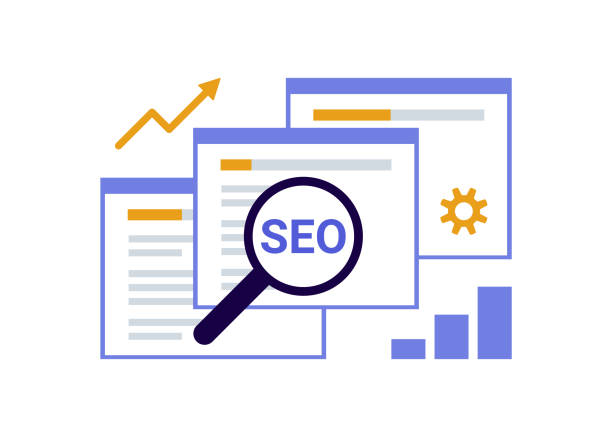
دنیای سئو همواره در حال تحول است و با پیشرفتهای فناوری، استراتژیهای آن نیز دستخوش تغییر میشوند.
یکی از مهمترین عواملی که آینده سئو را شکل میدهد، هوش مصنوعی (AI) است.
الگوریتمهای گوگل مانند رنکبرین (RankBrain) و برت (BERT) از هوش مصنوعی برای درک بهتر معنای جستجوهای کاربران و محتوای وبسایتها استفاده میکنند.
این بدان معناست که دیگر صرفاً استفاده از کلمات کلیدی کافی نیست؛ محتوا باید به طور کامل و جامع به سوالات کاربران پاسخ دهد و ارتباط معنایی قوی داشته باشد.
جستجوی صوتی (Voice Search) نیز روند رو به رشدی دارد و بر استراتژیهای سئو تأثیر میگذارد.
کاربران در جستجوهای صوتی معمولاً از عبارات طبیعیتر و سوالی استفاده میکنند (مثلاً “بهترین رستوران ایتالیایی نزدیک من کجاست؟” به جای “رستوران ایتالیایی”).
بنابراین، بهینهسازی برای کلمات کلیدی طولانی و محتوای سوالبرانگیز اهمیت بیشتری پیدا میکند.
علاوه بر این، سئو ویدئو، سئو تصویری و سئو محلی نیز به تکامل خود ادامه میدهند.
مفهومی به نام E.A.T (Expertise, Authoritativeness, Trustworthiness – تخصص، اعتبار، اعتماد) نیز از سوی گوگل مورد تاکید قرار گرفته است که بر کیفیت و قابلیت اعتماد منبع محتوا تمرکز دارد.
این بدان معناست که وبسایتها باید نه تنها محتوای با کیفیت تولید کنند، بلکه خود را به عنوان مرجعی معتبر در حوزه فعالیتشان معرفی کنند.
درک این روندها و تطبیق استراتژیهای سئو با آنها برای حفظ رقابتپذیری در آینده ضروری است.
اشتباهات رایج و بهترین روشها در سئو مسیر پیش رو
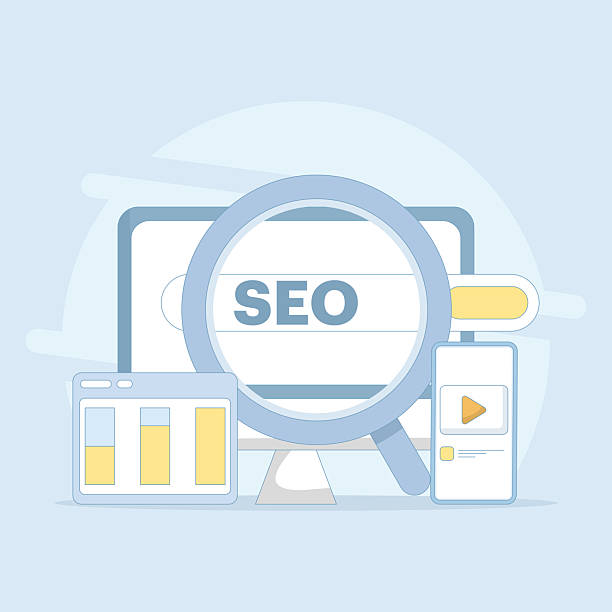
در مسیر بهینهسازی موتورهای جستجو، مرتکب شدن اشتباهات رایج میتواند تلاشهای شما را بیثمر کند و حتی به رتبه سئو سایت شما آسیب برساند.
یکی از رایجترین اشتباهات، پر کردن کلمات کلیدی (Keyword Stuffing) است؛ یعنی تکرار بیش از حد کلمات کلیدی به شکلی غیرطبیعی که به خوانایی محتوا آسیب میرساند و توسط موتورهای جستجو جریمه میشود.
محتوای با کیفیت پایین یا کپی شده از دیگر سایتها نیز میتواند منجر به پنالتی گوگل شود.
استفاده از تاکتیکهای سئو کلاه سیاه (Black Hat SEO) مانند خرید لینکهای بیکیفیت، پنهانسازی متن یا ایجاد صفحات پر از کلمات کلیدی، اگرچه ممکن است در کوتاهمدت نتایج کاذبی داشته باشند، اما در نهایت منجر به حذف وبسایت از نتایج جستجو خواهند شد.
نادیده گرفتن تجربه کاربری (UX) نیز یک اشتباه بزرگ است؛ سایتی که از نظر سرعت، طراحی واکنشگرا و ناوبری ضعیف باشد، هرگز نمیتواند در رتبهبندیهای بالا باقی بماند.
از طرف دیگر، پیادهسازی بهترین روشها (Best Practices) در سئو کلید موفقیت پایدار است.
تمرکز بر تولید محتوای ارزشمند و کاربرمحور، ساخت یک پروفایل لینک طبیعی و با کیفیت، بهینهسازی فنی مداوم سایت، و پایش منظم عملکرد با ابزارهای تحلیلی، از جمله این بهترین روشها هستند.
به یاد داشته باشید که سئو یک فرآیند مداوم است و نیاز به صبر، تلاش و تطبیق مستمر با تغییرات الگوریتمهای جستجو دارد.
با اجتناب از اشتباهات رایج و پیروی از اصول اثباتشده، میتوانید مسیر رشد و موفقیت بلندمدت را برای وبسایت خود هموار کنید.
سوالات متداول
| سوال (Question) | پاسخ (Answer) |
|---|---|
| سئو (SEO) چیست؟ | سئو یا بهینهسازی موتورهای جستجو، فرآیندی است برای افزایش کیفیت و کمیت ترافیک وبسایت به وسیله بهبود رتبه سایت در نتایج طبیعی (ارگانیک) موتورهای جستجو مانند گوگل. |
| انواع اصلی سئو کدامند؟ | سئو به سه دسته اصلی تقسیم میشود: سئو داخلی (On-Page SEO)، سئو خارجی (Off-Page SEO) و سئو تکنیکال (Technical SEO). |
| سئو داخلی (On-Page SEO) شامل چه مواردی است؟ | سئو داخلی شامل بهینهسازی عناصر درون وبسایت است، مانند کلمات کلیدی، عنوان صفحه (Title Tag)، توضیحات متا (Meta Description)، محتوا، ساختار URL، تصاویر و لینکهای داخلی. |
| سئو خارجی (Off-Page SEO) چیست؟ | سئو خارجی به فعالیتهایی خارج از وبسایت اشاره دارد که به بهبود رتبه آن کمک میکنند، مانند ساخت بکلینک (Backlink Building)، بازاریابی شبکههای اجتماعی و نامبردن از برند (Brand Mentions). |
| سئو تکنیکال (Technical SEO) چیست؟ | سئو تکنیکال به بهینهسازی جنبههای فنی وبسایت برای کمک به خزش و ایندکس شدن بهتر توسط موتورهای جستجو میپردازد. این شامل سرعت سایت، موبایل فرندلی بودن، ساختار سایت، نقشههای سایت (Sitemap) و فایل Robots.txt است. |
| کلمات کلیدی (Keywords) چه نقشی در سئو دارند؟ | کلمات کلیدی، عباراتی هستند که کاربران در موتورهای جستجو وارد میکنند. استفاده صحیح و هدفمند از کلمات کلیدی مرتبط در محتوا و عناصر سایت، به موتورهای جستجو کمک میکند تا موضوع صفحه شما را درک کرده و آن را به جستجوهای مرتبط نمایش دهند. |
| بکلینک (Backlink) چیست و چرا مهم است؟ | بکلینک یا لینک ورودی، لینکی از یک وبسایت به وبسایت دیگر است. بکلینکها برای موتورهای جستجو به عنوان یک “رای اعتماد” از سایتهای دیگر عمل میکنند و نقش مهمی در اعتبار و افزایش رتبه سایت دارند، به ویژه اگر از سایتهای معتبر باشند. |
| محتوای با کیفیت چه تأثیری بر سئو دارد؟ | محتوای با کیفیت، مرتبط، جامع و یونیک، نه تنها کاربران را جذب و نگه میدارد، بلکه به موتورهای جستجو نشان میدهد که صفحه شما ارزشمند است. این به بهبود رتبه، کاهش نرخ پرش (Bounce Rate) و افزایش زمان حضور کاربر در سایت کمک میکند. |
| چرا سرعت بارگذاری سایت برای سئو مهم است؟ | سرعت بارگذاری سایت یک فاکتور رتبهبندی مهم برای گوگل است. سایتهای سریعتر تجربه کاربری بهتری ارائه میدهند، نرخ پرش کمتری دارند و موتورهای جستجو آنها را ترجیح میدهند. |
| آیا سئو یک فرآیند یکبار مصرف است؟ | خیر، سئو یک فرآیند مداوم و طولانیمدت است. الگوریتمهای موتورهای جستجو دائماً در حال تغییر هستند، رقابت در حال افزایش است و محتوای سایت نیز نیاز به بهروزرسانی دارد. بنابراین، سئو نیازمند نظارت، تحلیل و بهینهسازی مستمر است. |
و دیگر خدمات آژانس تبلیغاتی رسا وب در زمینه تبلیغات
توسعه وبسایت هوشمند: خدمتی نوین برای افزایش مدیریت کمپینها از طریق سفارشیسازی تجربه کاربر.
نقشه سفر مشتری هوشمند: بهینهسازی حرفهای برای افزایش بازدید سایت با استفاده از اتوماسیون بازاریابی.
توسعه وبسایت هوشمند: راهکاری حرفهای برای بهبود رتبه سئو با تمرکز بر مدیریت تبلیغات گوگل.
توسعه وبسایت هوشمند: طراحی شده برای کسبوکارهایی که به دنبال تعامل کاربران از طریق برنامهنویسی اختصاصی هستند.
بهینهسازی نرخ تبدیل هوشمند: پلتفرمی خلاقانه برای بهبود افزایش نرخ کلیک با استفاده از دادههای واقعی.
و بیش از صد ها خدمات دیگر در حوزه تبلیغات اینترنتی ،مشاوره تبلیغاتی و راهکارهای سازمانی
تبلیغات اینترنتی | استراتژی تبلیعاتی | ریپورتاژ آگهی
منابع
راهنمای جامع سئو – ایران سرور
سئو چیست؟ – میزبان فا
آموزش سئو – سئو روز
سئو چیست و چگونه کار میکند؟ – آسان وب
? آیا آمادهاید تا کسبوکار خود را در دنیای دیجیتال متحول کنید؟ رساوب آفرین، آژانس دیجیتال مارکتینگ پیشرو، با تخصص در ارائه راهکارهای جامع از جمله طراحی سایت سئو شده، سئو، بازاریابی محتوا و مدیریت شبکههای اجتماعی، آماده است تا شما را در مسیر رشد و دستیابی به حداکثر دیده شدن یاری کند.
📍 تهران ، خیابان میرداماد ،جنب بانک مرکزی ، کوچه کازرون جنوبی ، کوچه رامین پلاک 6




